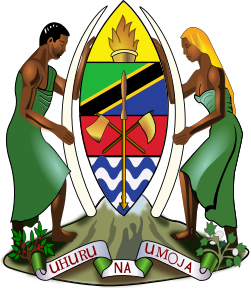
The United Republic of Tanzania is a State in Central Africa bordered by Kenya and Uganda from the north, Rwanda, Burundi and the Democratic Republic of the Congo to the west, Zambia, Malawi and Mozambique to the south. Country's eastern border lies on the Indian Ocean.
.svg.png)
The Republic of Tanzania is a federal republic of 26 mikwa (regions). The current leader of the state is President Jakaya Kikwete who was elected in 2005. Since 1996, Dodoma has become the official capital of Tanzania, where there is parliament and some government offices. After independence until 1996, the main coastal city of Dar es Salaam was the country's political capital. Dar es Salaam remains Tanzania's main commercial city and, in fact, the center of most government institutions and is the main port of the country and its landlocked neighbors.
The name Tanzania derives from the merger of the names Tanganyika and Ziljibar, which were united in 1964 to form the Federal Republic of Tanganyika and Ziljibar, which was renamed later in the same year to the United Republic of Tanzania.
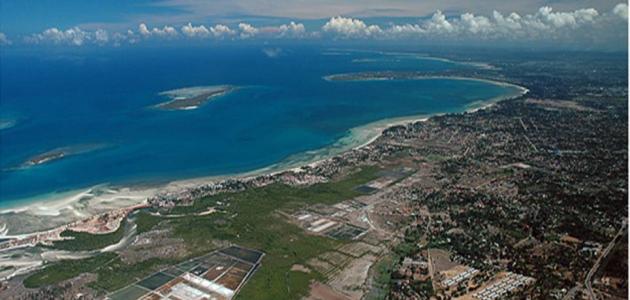
Date
Tanzania is one of the oldest known areas on Earth where human remains are present. Human remains and human beings dating back more than 2 million years have been found. Tanzanians are believed to be from the fishing communities - groups of Kushic and Khuwaisian speakers. About 2000 years ago, a series of migrations to Tanzania from West Africa began, and these migrations were Bantu speakers. Later, the Nile herders arrived and continued to migrate to the region until the 18th century.
Travelers and traders from the Arabian Gulf and West Africa have been visiting the East African coast since the beginning of the first millennium AD. Islam also reached the Swahili coast from the eighth or ninth century AD.

After the reign of the great Sultan Saeed bin Sultan Al Said on the coastal strip, his capital was transferred to Zanzibar in 1840. During this period, Zanzibar became the center of the slave trade among the Arabs. About 60-90% of Zanzibar's Arab-Swahili population were enslaved. One of the most famous slave traders in the East African coast was Typo Tip, who was himself the grandson of an African slave. The Namibian slave traders worked under the supervision of Messiri and Mirampo.
.jpg)
At the end of the 19th century, the German Empire invaded what is now Tanzania (except Zanzibar), Rwanda and Burundi, and annexed it to East German Germany. During the First World War, German General Paul von Litoff-Forbeck foiled an attempted British invasion and waged a long-standing guerrilla war against Britain, known as the East African Campaign. The post-World War I agreements and the League of Nations charters transformed the region into a British Mandate area with the exception of a small area in the north-west that was granted to Belgium and later became known as Rwanda and Burundi.
British rule ended in 1961 after a transition to independence, which was peaceful compared to neighboring Kenya, for example. Julius Nyerere established in 1951 the East African National Union of Tanganyika, which was of a political nature. The primary objective of this Union was to achieve the full national independence of Tanganyika. Launched a campaign to recruit members of this union, which became after only one year of the leading political institutions in the state.
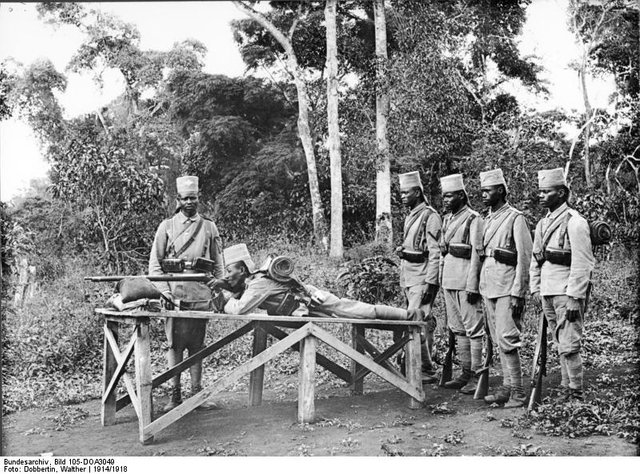
Nyerere became a British minister in Tanganyika in 1960 and became prime minister after independence in 1961. Nyerere's first presidency went to the left after the Arusha Declaration, which did not commit to socialism in the style of African unity. After the announcement of the nationalization of banks and many large industries.
The island merged with Tangjakia and formed the state of Tanzania after the Zanzibar revolution, which overthrew the Arab dynasty in Zanzibar. The union of these two regions raised controversy among the population of Zanzibar (even among the supporters of the revolution) but was acceptable to the Nyerere government and the revolutionary government of Zanzibar thanks to their common political goals and values.
Tanzania's economy began to worsen in the late 1970s, but from the mid-1980s it financed itself with loans from the International Monetary Fund (IMF) and some reforms, raising GDP and reducing poverty in the country.
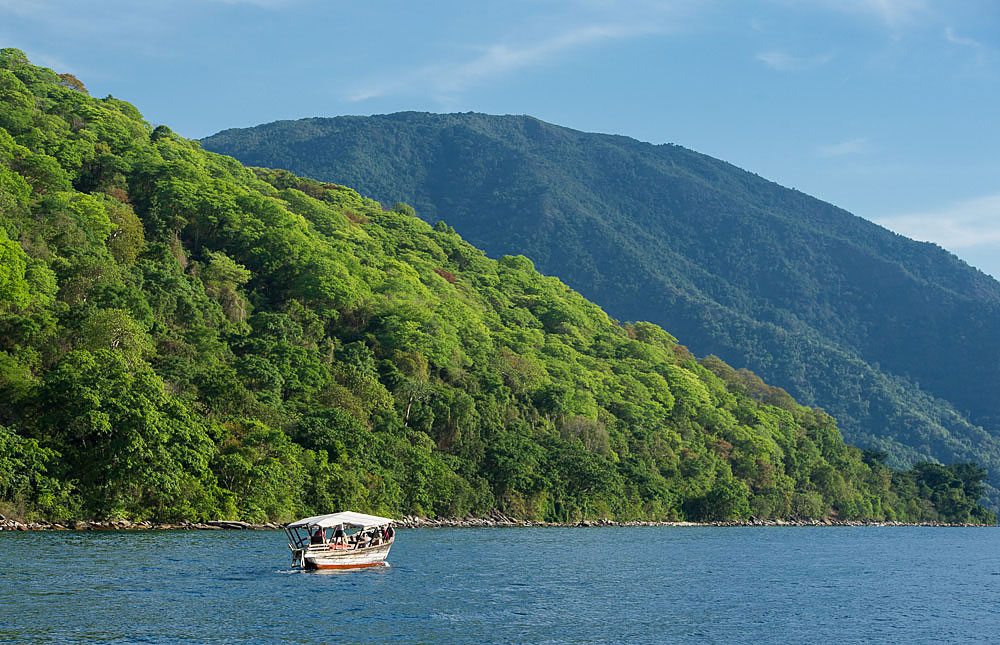
Politics
The President and members of the National Assembly shall be elected by direct popular vote for a period of five years. The President is appointed as Minister of Ministers and serves as the Head of State in the National Assembly. The president elects his ministers from among the members of the People's Assembly, and the Constitution authorizes him to nominate 10 non-elected members of parliament to ministerial posts. Elections for the president and members of the National Assembly were held in December 2005. Tanzania is a one-party dominant state, and the Chama Cha Pinduzi party is now in power. Opposition parties in the state have no chance of gaining power, but conditions are peaceful.
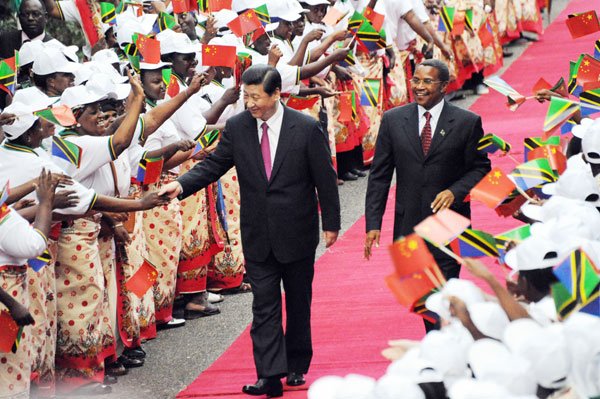
The 295 members of the National Assembly were elected in the year 2000. These include 295 members of the public prosecutor, 5 members elected by the Zanzibar parliament to participate in the parliament, women's seats, which include 20% of the seats granted to the party, 181 members of parliament, 50 seats from Zanzibar, 48 seats reserved for women, 10 seats for members Parliament candidates. The ruling party Chama Cha Mindozi currently holds 93% of the seats in the council. Laws enacted by the People's Assembly shall be valid in Zanzibar only in matters of the Union appointed in advance.
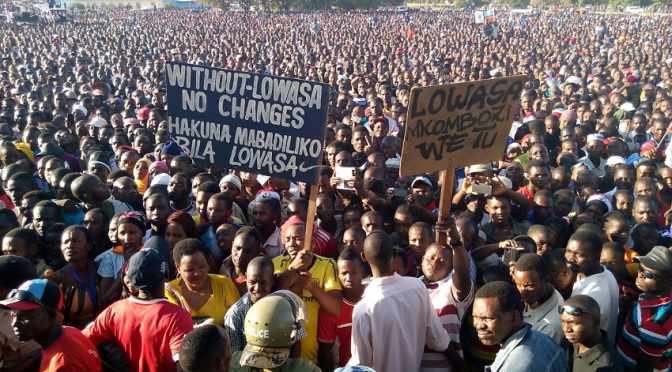
The Sultan of the Zanzibar Chamber of Deputies includes all matters not related to the Union. There are currently 76 members of the House of Representatives in Zanzibar, 50 members elected by the people, 10 members appointed by the President, 5 ex officio members and a Deputy General appointed by the President. In May 2002, the government raised the number of seats allocated to women from 10 to 15, bringing the number of members of the House of Representatives to 81 members. The House of Representatives in Zanzibar could theoretically enact laws in Zanzibar without the consent of the Union Government as long as these laws are not related to the Union. The President of Zanzibar and members of the House of Representatives are elected for a term of five years. The semi-autonomous relationship between Zanzibar and the Union is a distinct system of government.
Tanzania has a judicial system of 5 degrees, which includes the judicial scope of Islamic, tribal and British general laws. Appeals are made in the courts of first instance, then the logical courts, then the court of the resident judge, the Supreme Court, and finally the court of appeals. The President of the Supreme Court shall appoint all judges except the judges of the Supreme Court and the Court of Appeals appointed by the President. The Zanzibar court system balances the legal system of the Federation and it is possible to appeal all cases that have been tried in the Zanzibar courts in the Court of Appeal, except those cases which deal with constitutional and Islamic matters. The Commercial Court was established in September 1999 and is a division of the Supreme Court
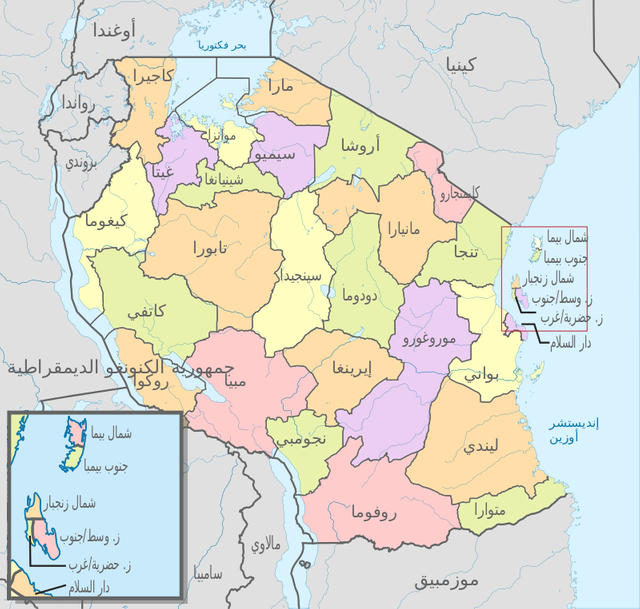
Administrative Divisions
Tanzania is divided into 26 Makkah regions, 21 of which are in the mainland and five in Zanzibar (three on Ungoga and two in Bemba). Areas are divided into ninety-nine provinces (state) each with at least one council to increase local authority; these councils are also known as local government authorities. Currently there are 114 working councils in 99 districts, 22 in cities and 92 in rural areas. Urban councils are classified as city councils (Dar es Salaam and Mwanza), municipal councils (in Arusha, Dodoma, Iringa, Kilimanjaro, Mbeya, Morogoro, Shinninga, Tabura and Tanga) or village councils (in the remaining 11 communities). Tanzania: Arusha, Dar es Salaam, Kigoma, Kilimanjaro, Lindi, Menara, Mara, Mbya, Morugoro, Mtwara, Mwanza, Bemba, Bemba, Pwani, Rokwa, Rufoma, Chinanga, Sengida, Tabora, Tanga and Ziljibar, central and south of Zanzibar, north and Zanzibar.
Economy
Agriculture is the mainstay of the Tanzanian economy and accounts for 85% of the value of exports. More than 80% of the population is made up of rice, maize and tuberous crops. Agricultural food crops occupy 60% of the agricultural land. Cotton, coffee, cloves, cassava, cassava, Sugar cane and oil palm. Livestock is an economic pillar in the country. The number of cows is around 11 million, sheep and goats 10 million and their production of minerals includes tin, copper and phosphates, and the food industry, textiles, leather industry and some other industries.
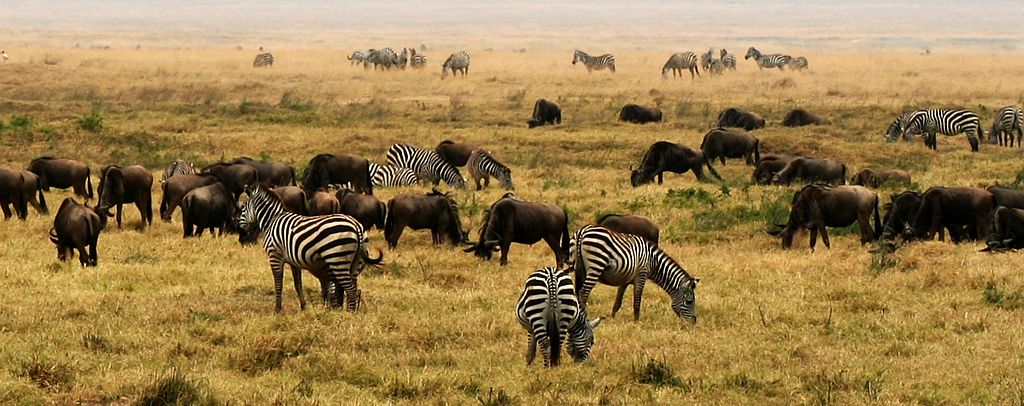
The environment
Tanzania stretches from the Indian Ocean to the east in the form of sandy beaches, coral reefs and marshes with coastal mangrove forests, and a coastal plain with a maximum width in the central region to the west of Dar es Salaam. The volcanic mountains spread over it, such as Kilimanjaro, the highest mountain in Africa, near the border with Kenya, Mount Uzbara and Wolfgangston, and the African grove. Tanzania has a large surface of fresh lakes, over 53,000 km, half Lake Victoria, half Tanganyika, From b Liras Malawi (Nyasa previously) and a number of small lakes, the most prominent rivers of Tanzania Ruvuma and forms the border between Mozambique and the River Rufiji, and Louami and Benjani. Tanzania has a good number of animal species, with many species of deer, large cats, donkeys, buffaloes, cows, giraffes, elephants and ostriches in the savannah, goat and mountain gazelles on the slopes of the mountains such as Kilimanjaro and Uzbara, as well as many species of birds in Tanzania such as parrots, gulls and puffins.